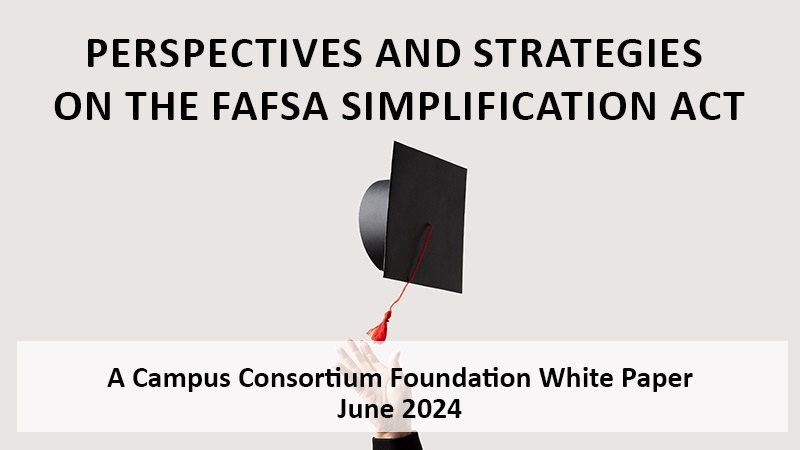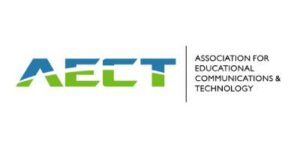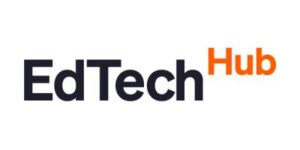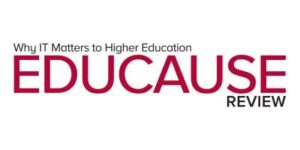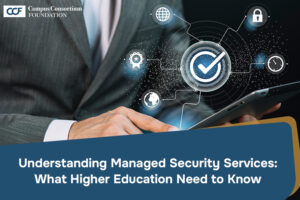Research & Insights
What We Share


Field Notes & Learnings
Open reflections on what worked, what didn’t, and what we’re iterating on.

Research
Reports
Deep dives into equity gaps, technology trends, and design principles behind our ventures.

Impact
Briefs
Data snapshots from pilot implementations and community outcomes.

Events & Dialogues
Join roundtables, webinars, or convenings where we open-source insights and invite feedback from peers.
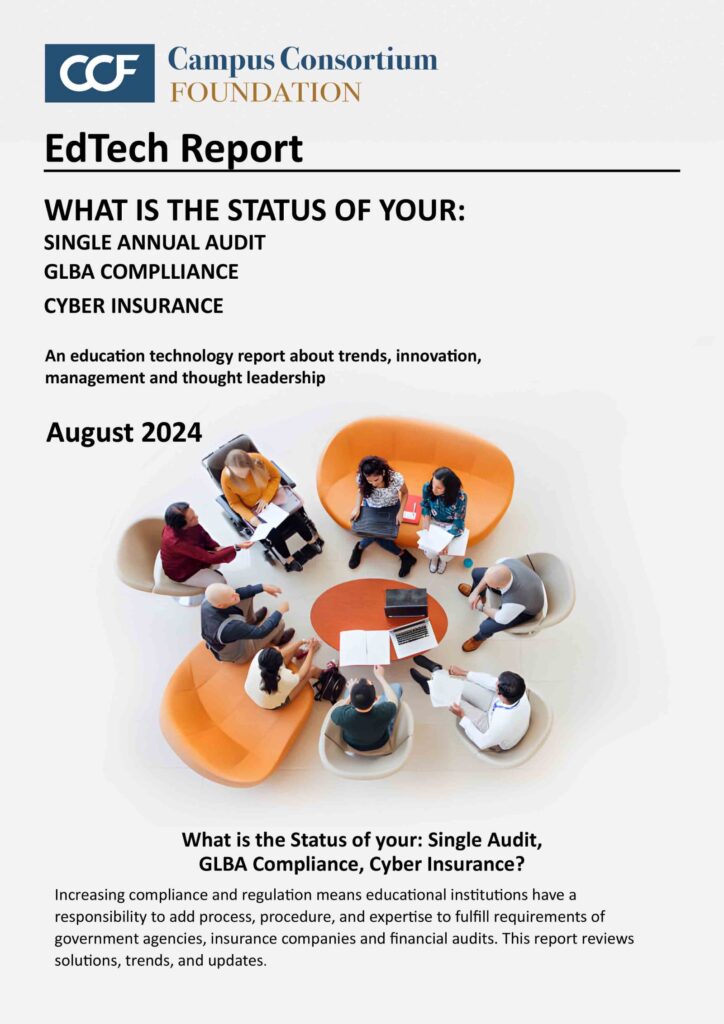
What is the Status of your: Single Audit, GLBA Compliance, Cyber Insurance?
Why Read This Report
Increasing compliance and regulation means educational institutions have a responsibility to add process, procedure, and expertise to fulfill requirements of government agencies, insurance companies and financial audits. This report reviews solutions, trends, and updates.
How the FAFSA Simplification Act Impacts Students and Schools
Why Read This Report
This comprehensive report addresses the challenges admissions teams have faced and the adaptive strategies institutions implemented to keep families and students informed and supported throughout the financial aid process. This report is an essential resource for navigating the financial aid changes effectively.
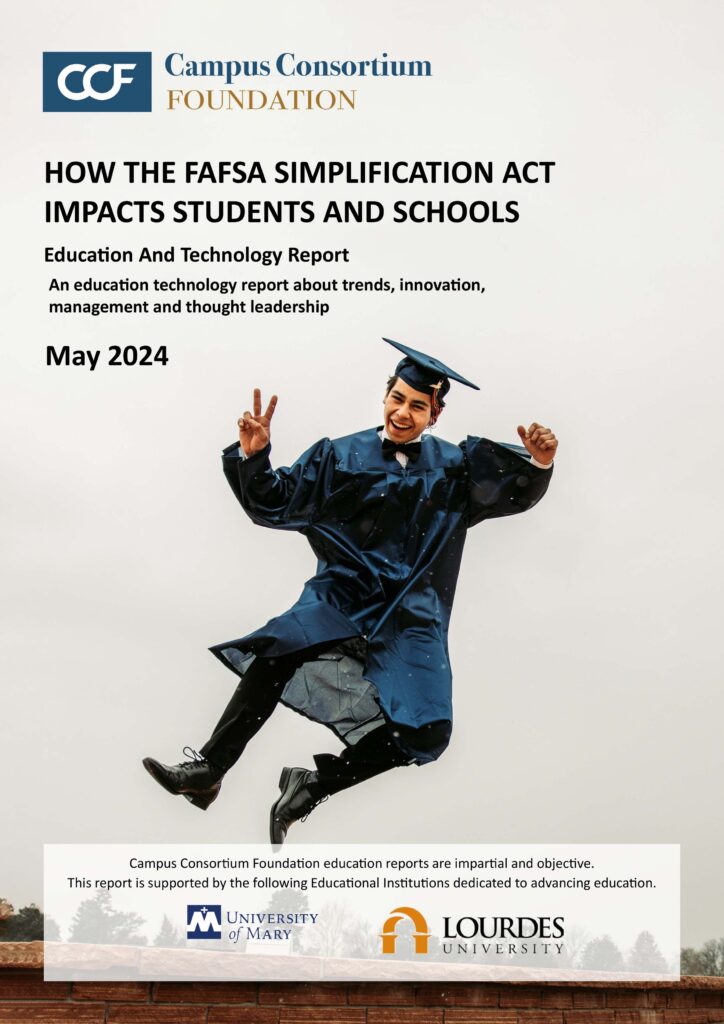
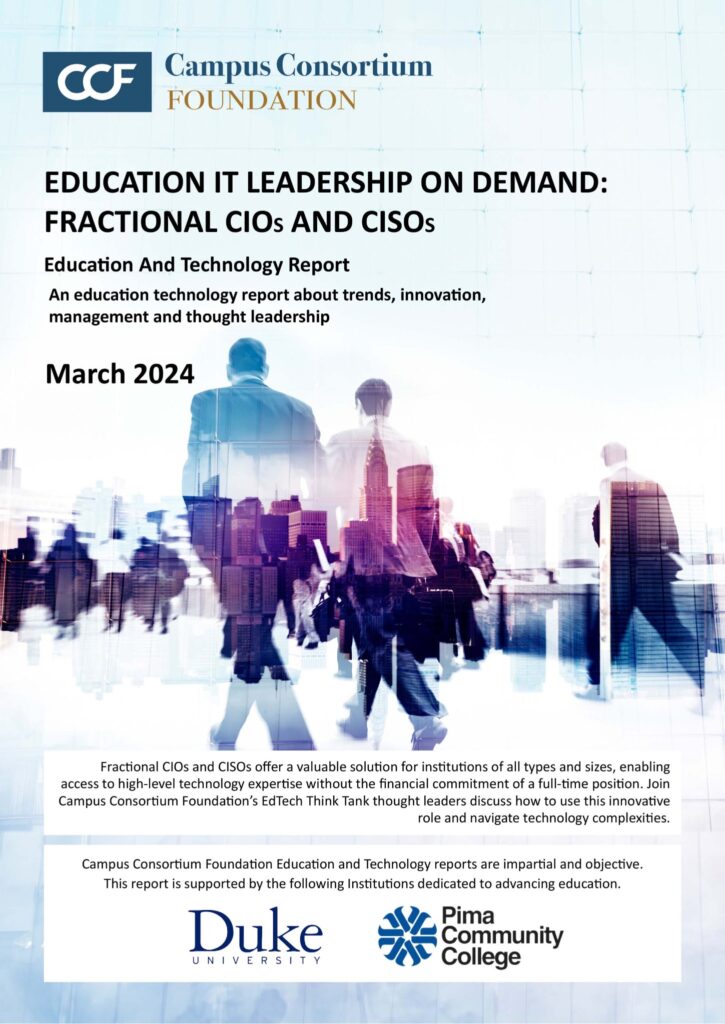
Education IT Leadership On Demand: Fractional CIOs and CISOs
Why Read This Report
Fractional CIOs and CISOs offer a valuable solution for institutions of all types and sizes, enabling access to high-level technology expertise without the financial commitment of a full-time position. Join Campus Consortium Foundation’s EdTech Think Tank thought leaders discuss how to use this innovative role and navigate technology complexities.
Legacy IT is not Sustainable: Transformational IT is The Future
Why Read This Report
Student, Faculty and Staff expectations are vastly different than in the past because technology impacts the socks, business, and personal aspects of everyone’s personal and professional lives. The education sector’s legacy IT infrastructure and service model is not sustainable as educators struggle with limited funds and hard to find expertise These conditions create vulnerabilities, risk, and inadequate student service. Education transformation includes changing the legacy model of institutions managing themselves to the prudent use of IT managed services
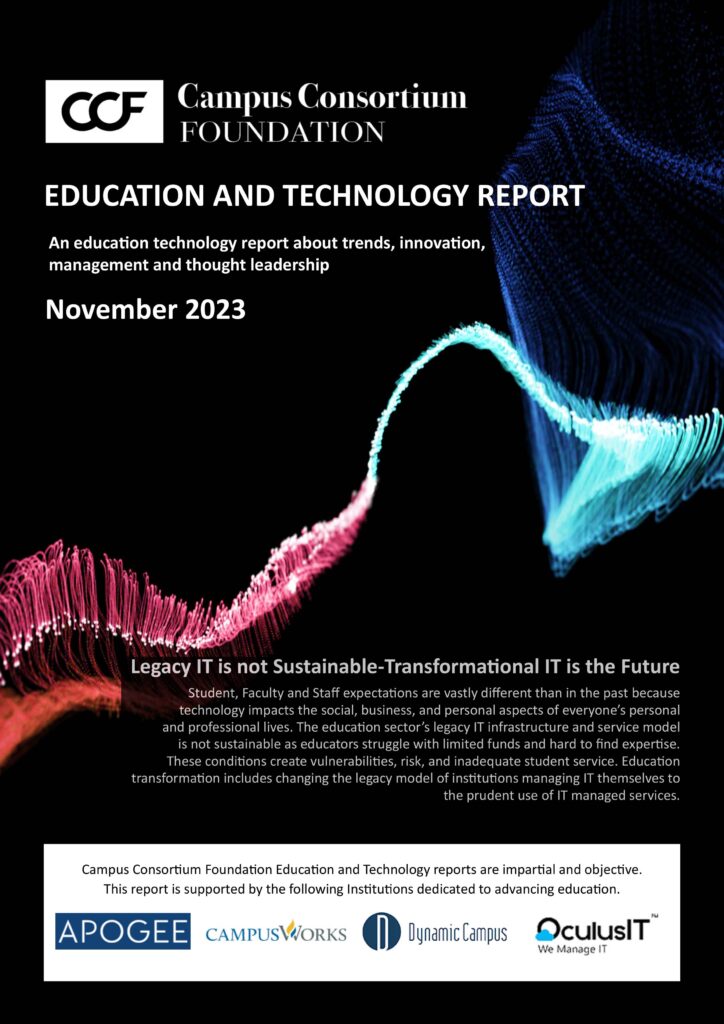
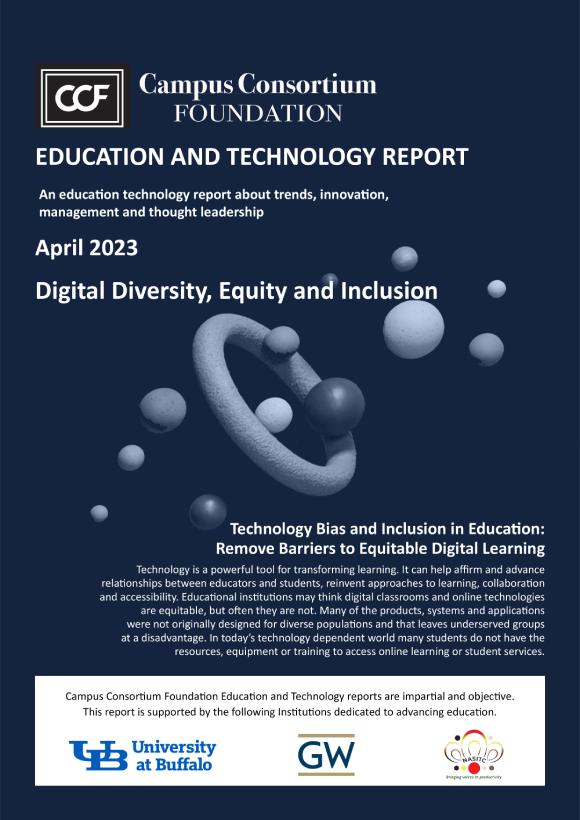
Digital Diversity Equity and Inclusion (DDEI)
Why Read This Report
Technology is a powerful tool for transforming learning it can help affirm and advance relationships between educators and students and reinvent approaches to learning. Collaboration and cozy, Educational institutions may think digital classrooms and online technology are equitable, but often they are not. Many of the products, systems, and applications were not originally designed for diverse populations and that leaves underserved groups at a disadvantage. In today’s technology-dependent world, many students do not have the resources, equipment, or training to access online learning or student services.
EdTech Innovation and Education Transformation
Why Read This Report
Edtech Innovation will transform and advance educational institutions of the future. This report presents five EdTech founders and leaders who describe how education is changing and the innovation they provide to advance education.
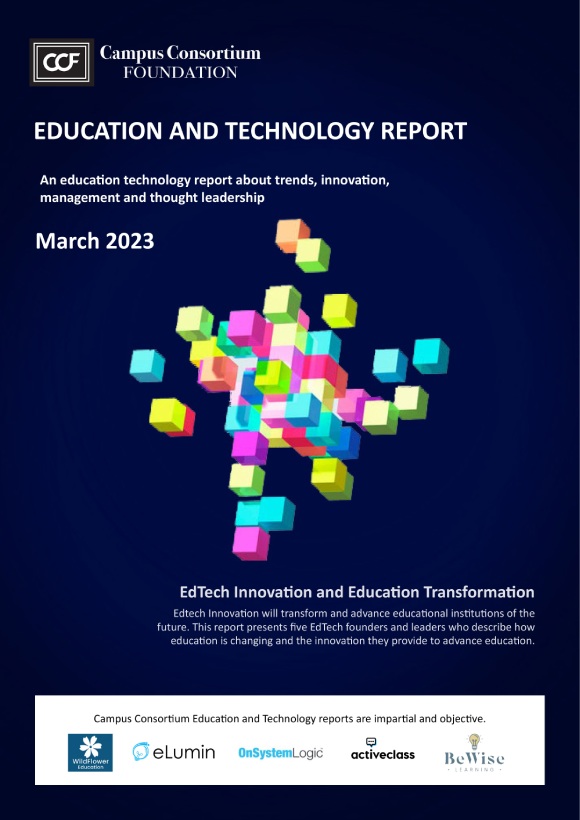
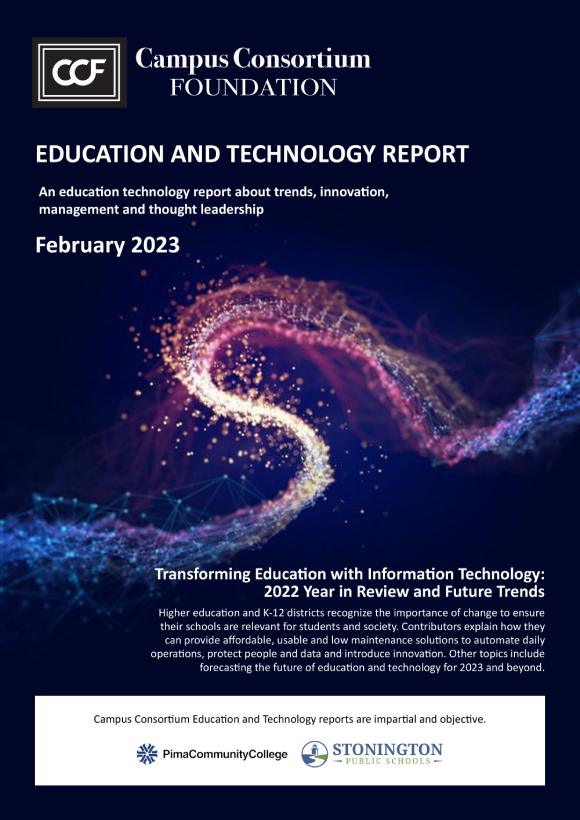
Transforming Education with Information Technology Year in Review and Future Trends
Why Read This Report
Higher education and K-12 districts recognize the importance of change to ensure their schools are relevant for students and society. Contributors explain how they can provide affordable, usable and low maintenance solutions to automate daily operations, protect people and data and introduce innovation. Other topics include forecasting the future of education and technology for 2023 and beyond.
Identity and Access Management Platforms
Why Read This Report
A central identity for students, faculty, and staff across all online systems, services, and applications is expected and essential for educational institutions. Identity and Access Management (IAM) systems offer more than authentication, they provide improved usability, customization, compliance, and secure authentication. This report offers a sample of IAM across the education sector with insight from some major IAM vendors.
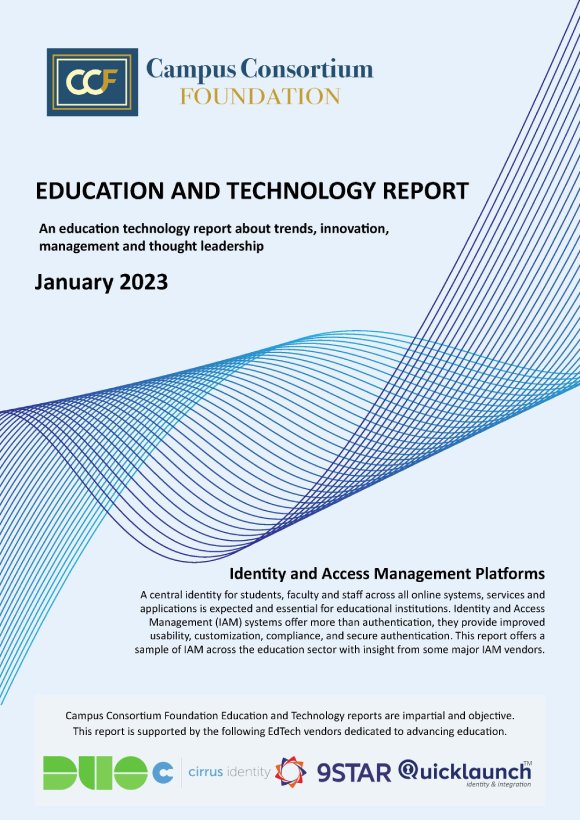
We count on our members to contribute and participate in our community
engagement activities: Thought Leadership via Our Monthly EdTalks Broadcast
engagement activities: Thought Leadership via Our Monthly EdTalks Broadcast

